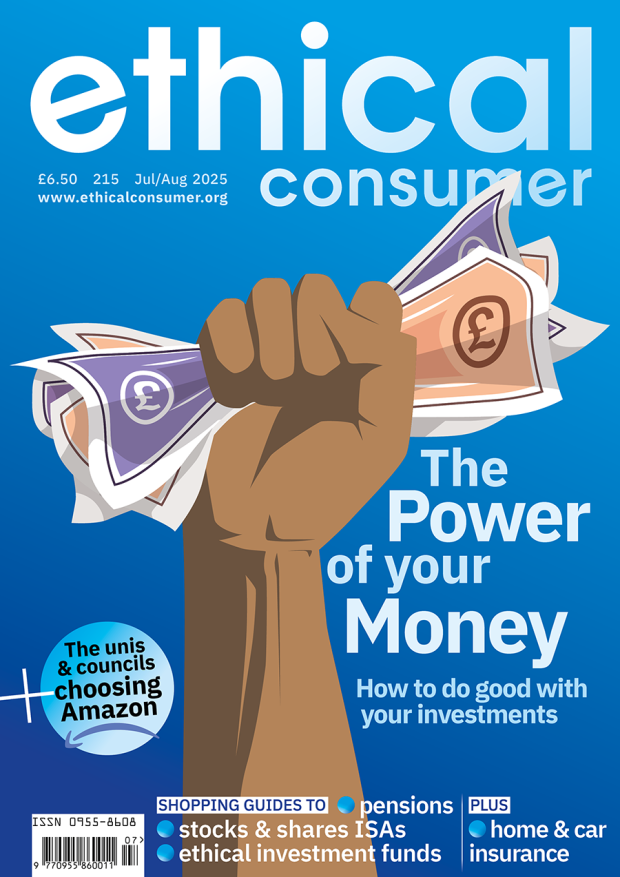Ethical car insurance companies
With the majority of brands scoring below 25/100, and no Best Buys for car insurance, there isn't a big choice of highly ethical car insurance providers. However, it's possible to find some companies in the middle of our score table which are taking steps towards becoming more ethical.
This guide covers all the well-known brands of car insurance providers, such as Admiral, Aviva, Direct Line, along with others including Ageas, AXA, esure, First Alternative, Hastings, LV=, NFU Mutual, and Sheila's Wheels.
Buying ethical car insurance
Car insurance matters to us because if we crash the car, it means we can cover the costs of repairs or replacement. But what are the ethical issues? Apart from giving us peace of mind, what impacts are our insurance choices having on the world?
As well as insuring us and our stuff, insurance companies insure businesses against all sorts of losses. They spread the risk of any venture and, in doing so, keep capitalism chugging along.
While many insurance companies stick to providing insurance for individuals or small and medium-sized businesses, the largest ones insure very big companies whose activities can have harmful impacts on the world, such as the development of new fossil fuel projects. They are therefore playing an essential role in the continuation of such activities.
Insurance companies are also investors. They invest our premiums (the amount paid for a contract of insurance) in the economy and those investments can end up in sectors and companies that have negative social and environmental impacts.
So, when you’re buying a car insurance policy, you’re not only covering yourself in case of misfortune, you’re also making a choice about the overall ethical direction of the economy.
Difference between insurance underwriters and brokers
There are two main types of company that sell car insurance: underwriters and brokers.
When buying insurance, most people do so from a broker or comparison site.
In this guide, however, we rate underwriters. These are the companies that assess and assume the risk of an insurance policy and pay out in the event of a claim. They are the ones that invest our premiums and provide insurance for companies. It therefore makes sense to rate their policies and practices.
A lot of banks provide insurance but most of them aren’t underwriters. The exception is Lloyds which underwrites its own home insurance policies and those of its Halifax brand. It sells car insurance too but doesn’t underwrite these policies – they’re underwritten by a range of other providers.
We have not included brokers in the score table. This is because brokers research and recommend policies from a range of underwriters, but they don’t actually assume the risk of an insurance policy. So it would be difficult to provide a single rating for such companies. If buying from a broker, you can normally see the list of underwriters they use on their website and any policy document should tell you who the underwriter is. You can also tell your broker if there are any underwriters you don’t want to buy from.
Although we have not rated them in the guide, we have included information on some ethical insurance brokers, and a bespoke ranking of the specialist green and charity broker Naturesave.
We have also provided background information on some of the bigger comparison websites which are used for car insurance quotes.




